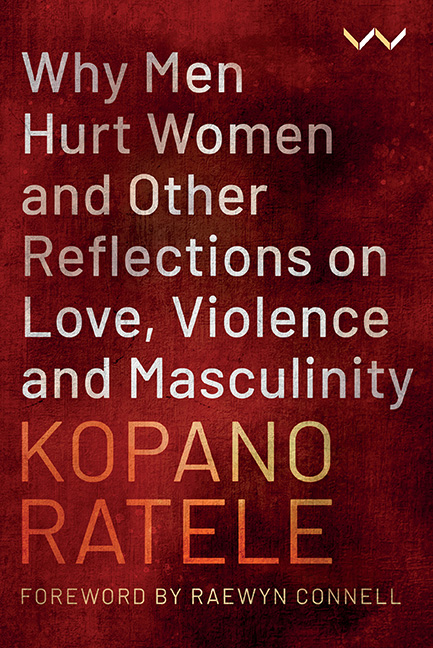34 - The masculinity of a man who is a boy
Published online by Cambridge University Press: 24 November 2023
Summary
In my country, for centuries adult men were regarded as boys. I have been talking a lot about men and boys. The difference is clear to me. Yet, while for some people the difference between men and boys is obvious – and, to be sure, botho means respecting people who are older than oneself – for others it may not be so. In fact, it was not unusual for many white men and white women to refer to adult men who worked for them as boys. This was intended to infantilise and demean them. We could say, then, some people do not have botho.
Is calling a grown man a boy not a provocation, a form of psychological violence? How can a person to whom this is done not be enraged? How do we turn around, then, and claim the men who have been violated like this are violent, as if we do not know the shame they and their forefathers had to endure in order to survive?
I have wondered, that is, whether some of us still believe, deep inside our unconscious minds, that some men are boys. I have also wondered, given how parents can transmit their experience of humiliation and shame to the next generation, whether some men continue to carry intergenerational shame. Could it be that this history of inferiorisation, of dehumanisation, is still to be excavated from inside some of us? Could it be that some of us still believe that we are not full men?
For a grown man to be seen or to talk about himself as a boy is more than seeing him as a subordinate. It goes beyond the relationship between a boss and an employee. Its main objective is to degrade, to wound his manhood, to cast the individual out of the category of grown-up men, out of adult masculinity. If you refer to an adult male as a boy, not in a playful manner but in a serious tone, repeatedly, while giving him instructions or rebuking him, he cannot be your equal. He needs your tutelage.
- Type
- Chapter
- Information
- Publisher: Wits University PressPrint publication year: 2022

